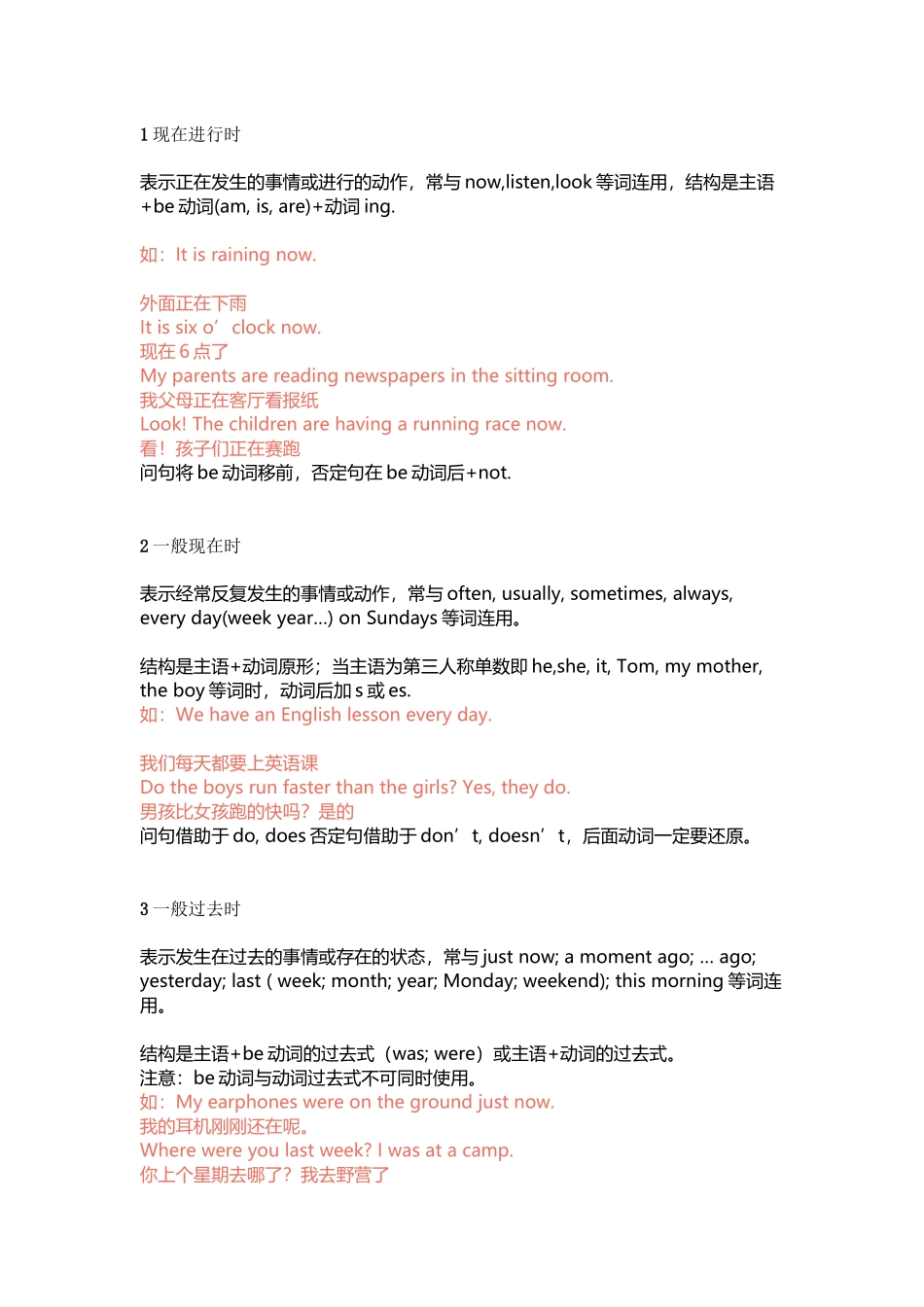1 现在进行时表示正在发生的事情或进行的动作,常与 now,listen,look 等词连用,结构是主语+be 动词(am, is, are)+动词 ing.如:It is raining now.外面正在下雨It is six o’clock now.现在 6 点了My parents are reading newspapers in the sitting room.我父母正在客厅看报纸Look! The children are having a running race now.看!孩子们正在赛跑问句将 be 动词移前,否定句在 be 动词后+not.2 一般现在时表示经常反复发生的事情或动作,常与 often, usually, sometimes, always, every day(week year…) on Sundays 等词连用。结构是主语+动词原形;当主语为第三人称单数即 he,she, it, Tom, my mother, the boy 等词时,动词后加 s 或 es.如:We have an English lesson every day.我们每天都要上英语课Do the boys run faster than the girls? Yes, they do.男孩比女孩跑的快吗?是的问句借助于 do, does 否定句借助于 don’t, doesn’t,后面动词一定要还原。3 一般过去时表示发生在过去的事情或存在的状态,常与 just now; a moment ago; … ago; yesterday; last ( week; month; year; Monday; weekend); this morning 等词连用。结构是主语+be 动词的过去式(was; were)或主语+动词的过去式。注意:be 动词与动词过去式不可同时使用。如:My earphones were on the ground just now.我的耳机刚刚还在呢。Where were you last week? I was at a camp.你上个星期去哪了?我去野营了What did you do yesterday? I visited a farm你昨天去干嘛了?我去参观农场了。问句有 be 动词将 be 动词移前,没有 be 动词借助于 did,后面动词还原;否定句有 be 动词在后面加 not,没有借助于 didn't 后面动词还原。4 一般将来时表示将要打算发生的事情或动作,常与 tomorrow, next week(year; Tuesday…), this week( weekend ;evening; afternoon;…)today 等词连用。结构是主语+be(am, is, are) going to + 动原或主语+will +动原。如:What are you going to do tomorrow? I am going to have a picnic.你明天要去干嘛?我要去野餐。The childre are going to have a sports meeting next week.孩子们下个星期将参加运动会。Tom will/is going to see...
